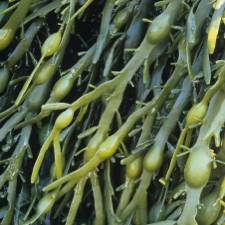Seaweed holds promise as more than an ingredient in a purifying face mask or a maki roll.
So say researchers at E.I. du Pont de Nemours & Co., which alongside Seattle-based Bio Architecture Lab (BAL) has secured $9 million from the Department of Energy to explore seaweed’s potential as a feedstock for biobutanol, an advanced biofuel.
Their venture appears to have largely cornered the current market. Though more than 200 companies have looked into algae-based biofuels, DuPont and BAL say most others have shied away from using macroalgae, like kelp.

“We’re in the vanguard here on this technology. There are other people who have talked about changing microalgae — green algae that floats in the water — into advanced biofuel, but [using] seaweed is unique,” said DuPont’s Nathan Danielson, a program manager who oversaw the companies’ DOE grant application.
That’s why the companies were able to win one of DOE’s Advanced Research Projects Agency-Energy (ARPA-E) awards, announced late last month, which are designed specifically for ambitious “high-risk, high-payoff” energy research projects.
Part of the reason seaweed hasn’t taken off as a biofuel source is that it’s not part of American culture, said Nikesh Parekh, CEO of Bio Architecture Lab. “Our founders are from Japan, and they are much more familiar with seaweed farming and seaweed as a culture crop.”
Planting a large-scale seaweed farm would likely come up against stiff opposition from those who are not used to seaweed farms in their backyards, agreed Mike Graham, an ecologist specializing in seaweed at the California State University-associated Moss Landing Marine Laboratories.
Source: scientificamerican
 Follow
Follow